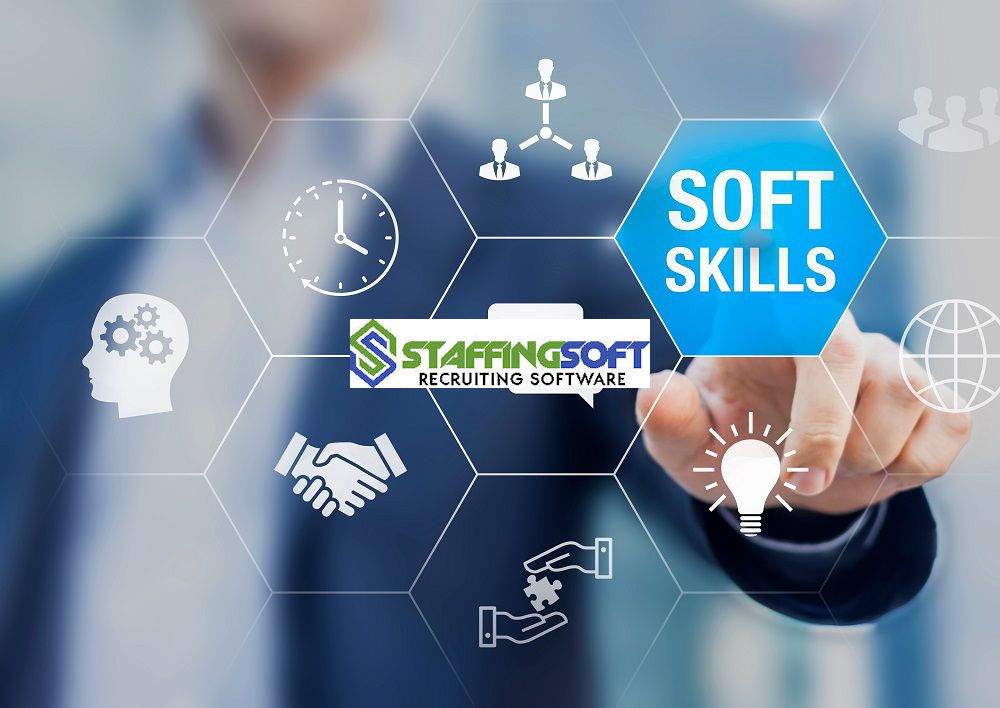In today’s competitive job market, finding the right candidate goes beyond assessing technical qualifications and experience. Soft skills, such as communication, teamwork, adaptability, and problem-solving abilities, are crucial for success in any role. However, evaluating these intangible qualities can be challenging for recruiters and hiring managers.
In this article, we will delve into effective strategies for assessing a candidate’s soft skills, helping you make informed hiring decisions.
-
Defina las habilidades sociales requeridas:
Before you even start interviewing candidates, take the time to define the soft skills that are most critical to the role you’re hiring for. Identify the key behaviors and characteristics that would make a candidate successful in the position.
For example, if you’re hiring a customer service representative, you might prioritize communication skills, empathy, and problem-solving abilities.
Este paso lo guiará para identificar en qué habilidades sociales centrarse durante la entrevista.
-
Entrevistas conductuales estructuradas:
conductual entrevistas son una excelente herramienta para evaluar las habilidades sociales. Implican pedir a los candidatos que brinden ejemplos específicos de cómo manejaron situaciones pasadas, lo que le permite evaluar sus habilidades de resolución de problemas, comunicación y liderazgo.
Estructura tus preguntas para descubrir cómo los candidatos manejan los conflictos, trabajan en equipos o se adaptan al cambio. Busque respuestas detalladas y perspicaces que demuestren autoconciencia y una mentalidad de crecimiento.
For example, if you’re looking for candidates with strong problem-solving abilities, you might ask questions like:
- Cuénteme sobre algún momento en el que tuvo que resolver un problema complejo en su puesto anterior.
- Describe un momento en el que utilizaste tus habilidades de pensamiento crítico para encontrar una solución a un desafío difícil.
-
Juegos de rol y simulaciones:
Simulations provide a realistic environment to assess a candidate’s soft skills. Depending on the role, you can create scenarios that mimic common challenges they may encounter. For example:
- Si contrata para un puesto de servicio al cliente, simule una queja de un cliente y observe cómo la maneja el candidato. Esta técnica ayuda a evaluar habilidades como la empatía, la escucha activa y la resolución de problemas bajo presión.
- If you’re hiring for a leadership role, you might ask candidates to lead a team-building activity and observe how they interact with others, delegate tasks, and solve problems.
-
Ejercicios grupales y evaluaciones de trabajo en equipo:
Las habilidades sociales a menudo pasan a primer plano en un entorno de equipo. Considere incorporar ejercicios grupales o evaluaciones de trabajo en equipo en su proceso de evaluación. Estas actividades pueden implicar desafíos de resolución de problemas o proyectos colaborativos en los que los candidatos trabajan juntos.
Observe how candidates communicate, contribute, and handle conflicts within the group. Look for individuals who actively listen, respect others’ opinions, and foster a positive team environment.
-
Evaluación de Inteligencia Emocional:
Emotional intelligence (EQ) is a crucial soft skill that can significantly impact an employee’s success. Assessing a candidate’s EQ can be challenging, but there are a few strategies you can employ.
Look for signs of self-awareness, empathy, and social skills during interviews and interactions. You can also utilize psychometric tests specifically designed to measure emotional intelligence. These assessments provide valuable insights into a candidate’s ability to manage emotions, understand others, and build relationships.
-
Verificaciones de referencias e investigaciones de antecedentes:
Mientras verificación de referencias and background investigations primarily verify a candidate’s work history and qualifications, they can also shed light on their soft skills.
Contact previous employers and colleagues to inquire about the candidate’s interpersonal skills, teamwork capabilities, and overall professionalism.Al hablar con personas que han trabajado estrechamente con el candidato, puede obtener información valiosa más allá de la que se proporciona durante el proceso de evaluación formal.
Por ejemplo, podría preguntarle a un ex supervisor:
- ¿Cómo manejó el candidato el conflicto en el lugar de trabajo?
- ¿El candidato pudo trabajar eficazmente con una amplia variedad de tipos de personalidad?
- In your experience, what are the candidate’s greatest strengths when it comes to soft skills?
-
Mejora Continua y Orientación al Aprendizaje:
In addition to the core soft skills, it is important to assess a candidate’s willingness to learn, grow, and adapt. Inquire about their experiences with professional development, continuing education, and seeking feedback.
Look for individuals who demonstrate a growth mindset and a desire to continuously improve their skills. This quality ensures that employees can adapt to new challenges and contribute to the organization’s growth.
-
Observar el lenguaje corporal y las señales no verbales.
Soft skills are often demonstrated through nonverbal cues such as body language, tone of voice, and eye contact. During the interview, pay attention to small details like how candidates sit, the tone of their voice, or whether they make eye contact. These nonverbal cues can provide additional insight into a candidate’s soft skills.
Por ejemplo, un candidato que establece contacto visual directo y habla con confianza podría demostrar sólidas habilidades interpersonales y de comunicación. Por el contrario, un candidato que evita el contacto visual y se mueve inquieto durante la entrevista podría estar indicando malestar con situaciones sociales o falta de confianza.
Conclusión:
Assessing a candidate’s soft skills is a critical aspect of the hiring process. While technical qualifications are important, it is the combination of hard and soft skills that determines an employee’s success in the long run.
By using a combination of structured behavioral interviews, simulations, teamwork assessments, emotional intelligence evaluations, and reference checks, you can effectively evaluate a candidate’s soft skills.
Recuerde definir las habilidades interpersonales necesarias para el puesto, evaluar el ajuste cultural y buscar candidatos con mentalidad de crecimiento. Con una estrategia de evaluación integral implementada, puede seleccionar con confianza candidatos que posean las habilidades interpersonales necesarias para prosperar dentro de su organización.
